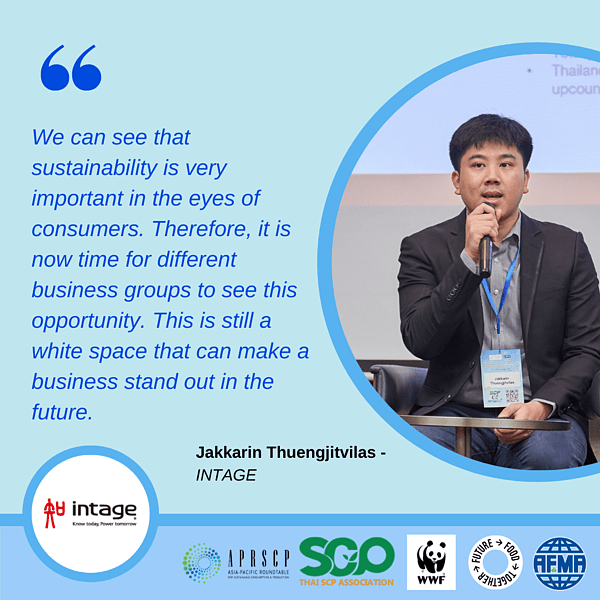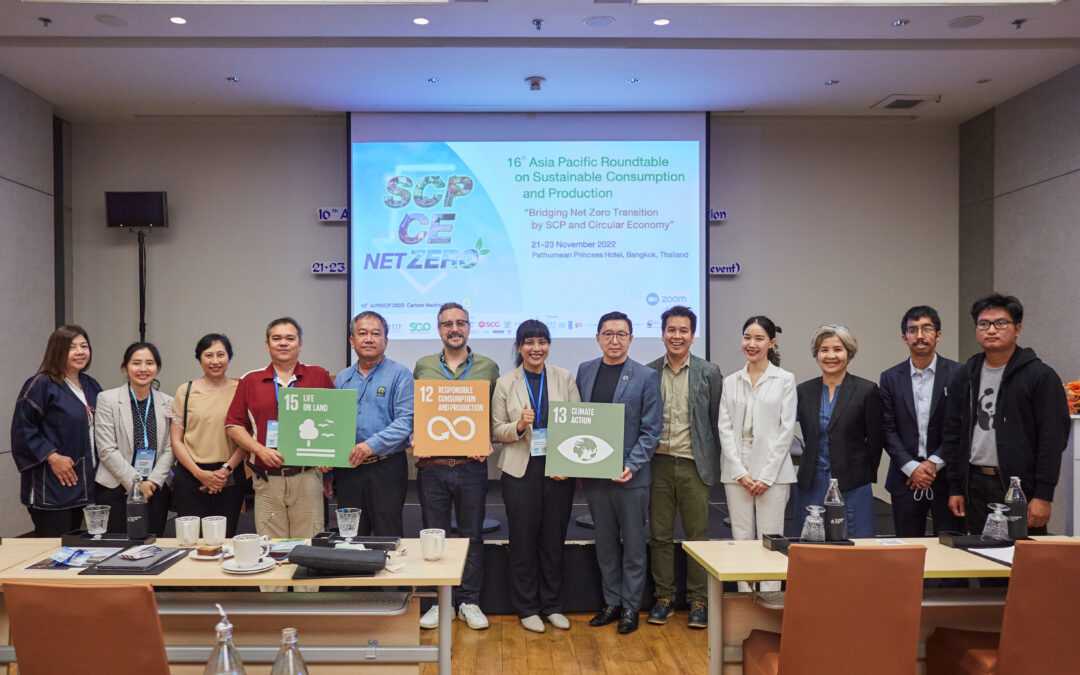© WWF-Thailand
On November 23, 2022, Future Food Together Thailand, in collaboration with the Agricultural and Food Marketing Association for Asia and the Pacific, organized the side event “Building sustainability into the Agri-Food value chains: Future Food Together” at the 16th Asia Pacific Roundtable on Sustainable Consumption and Production. The event brought together practitioners to discuss opportunities and business approaches for building sustainability into agri-food value chains.
Background
Running a “sustainable” business – a business approach that helps solve environmental and socio-economic problems – is not about recycling and planting trees, but about putting sustainability at the heart of the shareholder value proposition. To achieve sustainability transformation in businesses, business operations must reflect sustainable values.
Agri-food and forestry systems are critical to meeting the needs of society, the economy and the planet. They play an important role in production, trade and the environment. Agribusinesses are under increasing pressure to adopt sustainable practices that take into account not only economic aspects, but also social and environmental aspects. Increasing attention from policy makers, non-governmental organizations and academics has prompted agri-food companies to integrate sustainability into their business strategies. On the consumer side, food safety, health concerns, climate change and sustainability, leading to a reduction in resource use and environmental footprints, are increasingly influencing individual consumption choices and diets and are becoming important issues at the political level.
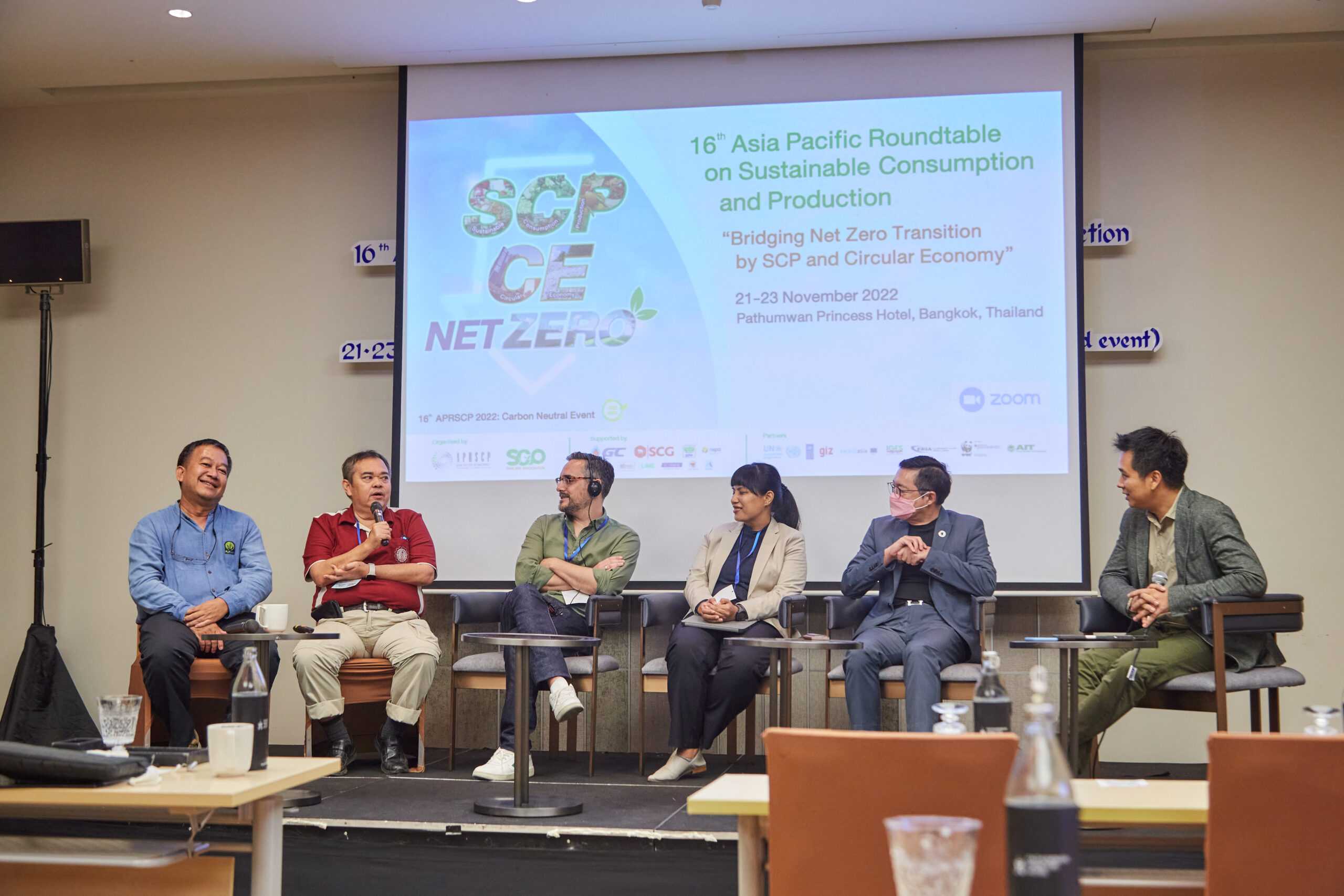
© WWF-Thailand
Global trends: challenges and opportunities
As one of the most important links between people and the planet, sustainable food and agriculture have great potential to address many of our challenges by providing affordable, nutritious food, strengthening livelihoods, revitalizing rural and urban landscapes, enabling inclusive national growth, and driving positive change. Value chain actors in the agri-food system-farmers, food processors, distributors, retailers, consumers, and food waste managers all play a role in ensuring a sustainable food system.
- Enabling policy environment: in recent years, an increasing number of governments have begun to implement policies and strategies to achieve this goal. Examples include the EU’s Farm to Farm strategy and the UN Food System Summit in 2021, where many countries have adopted pathways to a sustainable national food system. However, greater efforts are needed to significantly improve sustainability in agri-food value chains, particularly through a greater emphasis on sustainable agriculture, materials management and circular economy across the world.
- Green investments, new technologies and innovations: The agri-food sector is increasingly in the sights of entrepreneurs and investors. There are a number of new, promising technologies that have the potential to reshape agriculture. Investors are showing greater interest in the agri-food industry and its startups.
- The digitalization of food supply chains and innovative business models. Digitization enables food supply chains to be highly integrated, effective, and responsive to consumer and regulatory demands. It also facilitates the development of a shorter and lower-carbon supply chain. In addition, innovative business models are emerging in the agri-food sector to bridge the existing gap towards closed-loop and nature-friendly food supply chains.
- Growing demand for sustainable agri-food products: The climate crisis and COVID-19 pandemic present opportunities for countries to develop stimulus programs that reverse current trends and change our consumption and production patterns toward a more sustainable future.
- Circular economy and agroecological approach: the circular economy seeks to reduce resource consumption by promoting more efficient use of materials and energy through reuse and recycling of waste. Agroecology aims to close loops on as large a geographic scale as possible, such as in agriculture and livestock. Utilizing renewable resources, maximizing the efficient use of resources, and reusing waste to the greatest extent possible will lead to an improvement in the emissions footprint of the entire agricultural and food system.
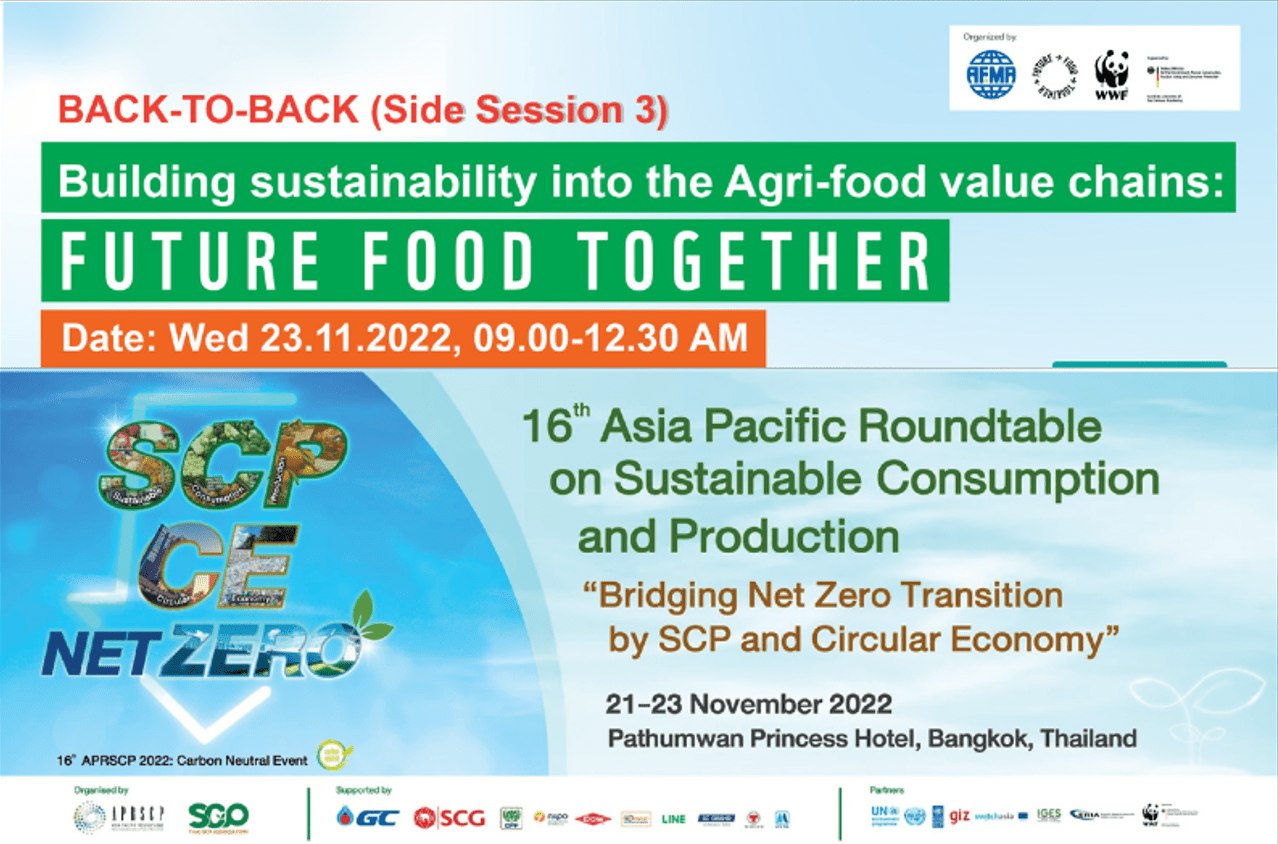
Event Flyer © WWF-Thailand
Event Objectives
As part of the SCP – Future Food Together project, WWF Thailand and key partners hosted a side event at the 16th APRSCP 2022 to present business models, key value propositions, and recommendations for companies and policymakers to address sustainability issues within agri-food value chains, based on a market research and social listening which has been conducted with Thai consumers and agri-food companies. The examples show that developing value chains based on inclusion and equity, circular economy, protecting and restoring nature, and empowering consumers to make informed choices as core values of business operations could be an important approach to ensure that all people have nutritious and healthy food, and that it is produced in a way that promotes forest restoration, soil improvement, and biodiversity, and strengthens rural livelihoods and resilience.
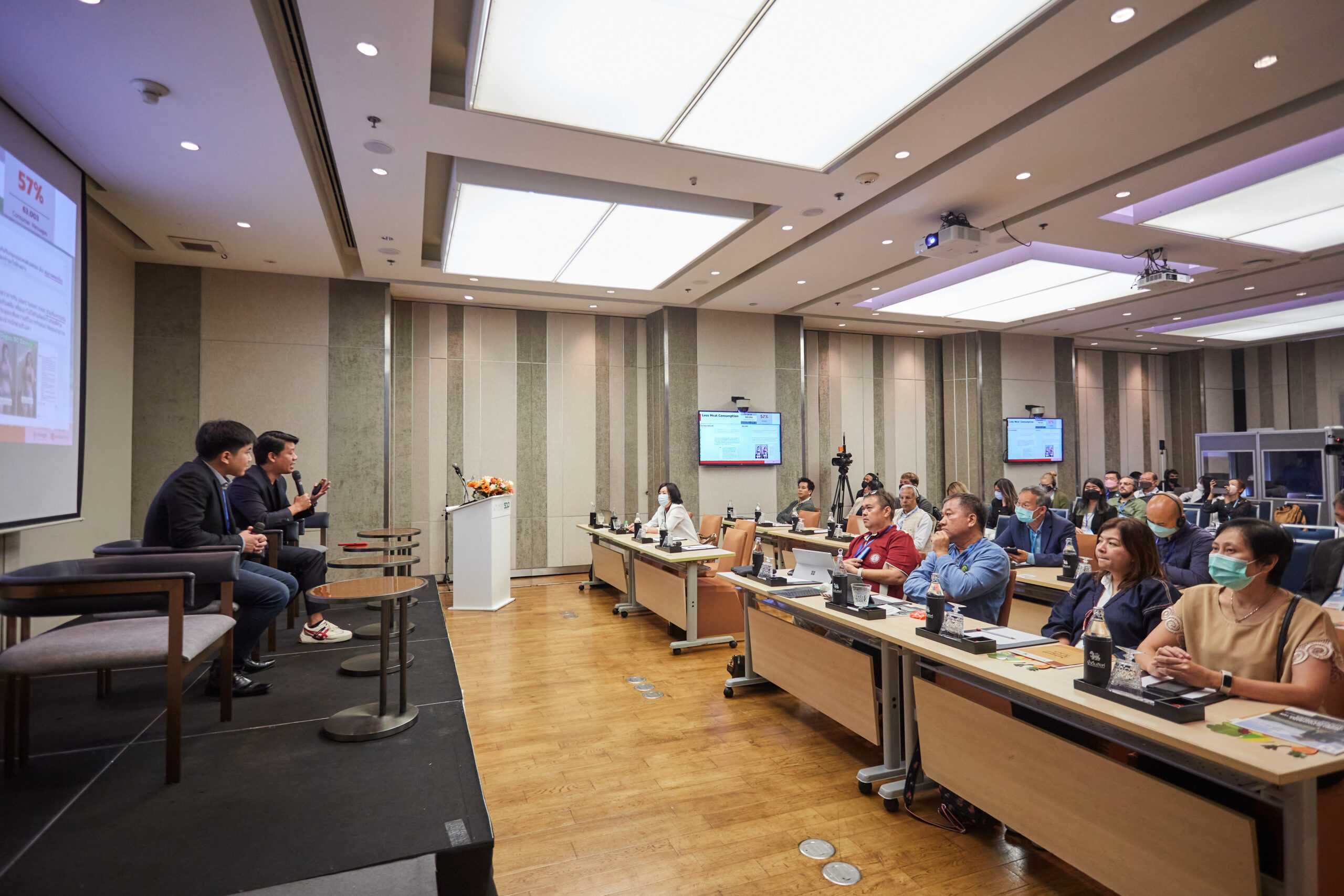
© WWF-Thailand
Event speakers and sessions
At the meeting, representatives from the private sector, public, and non-profit organizations gave insightful presentations on various topics related to agri-food value chains, including speakers from:
- WWF Thailand
- Agricultural and Food Marketing Association for Asia and the Pacific (AFMA)
- Thai Organic Innovation Foundation (TOF)
- Thailand Development Research Institutes (TDRI)
The event was divided into three sessions:
Trend, gaps and opportunity: In this session, the results of the Market Research “Eco-awakening- Gaps and Opportunities, and prioritized sustainability topics for sustainable Agri-food value chains” where discussed in detail by representatives from INTAGE (Thailand) Co., Ltd. and Wisesight (Thailand) Co., Ltd.
Business model for sustainable agri-food value chains: Representatives from TOF discussed the FLR349 SE business model and a representative from TDRI explained the FLR349 project’s social return on investment (SROI)
Digital tools for low-carbon business operations: Different digital tools and platform related to agri-food value chains were discussed in detail. This included an active carbon credit platform, a digital platform to support forest landscape restoration, agroecological, food system transformation, and Yindii a food surplus platform connecting consumers to vendors.
